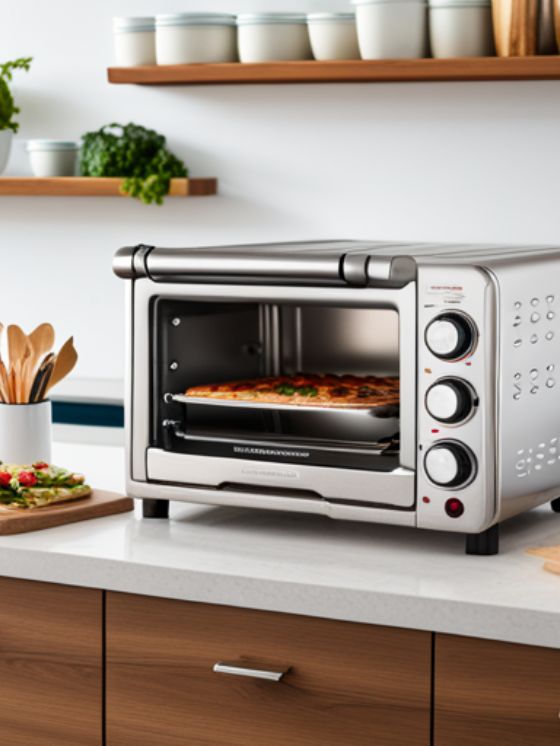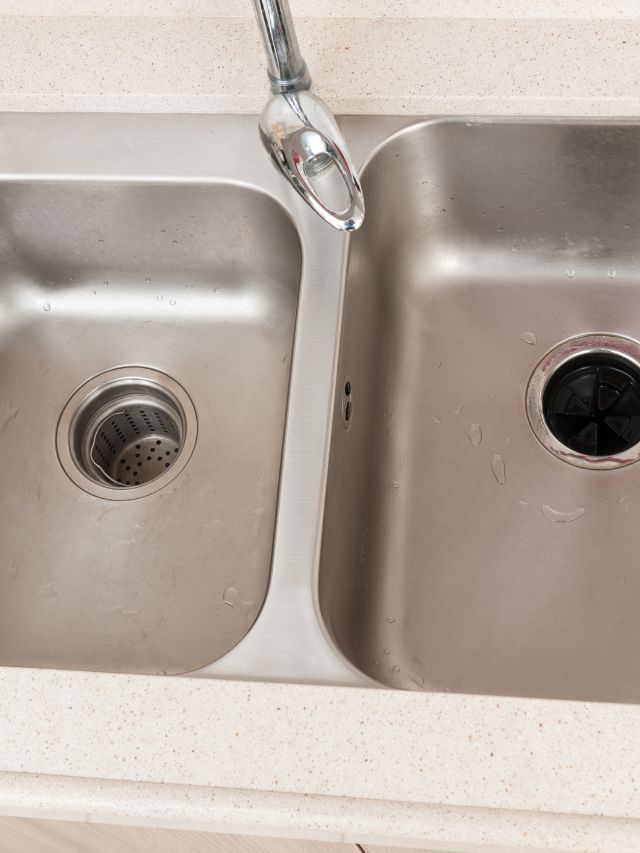Can You Put a Freezer in the Garage
Before you boldly bring your new big freezer into the garage, there are a few factors you might want to consider. You'd assume it's as simple as finding a spare corner, plugging it in, and voila – extra freezer space. However, the reality is a bit more complex.
There's a variety of variables – from temperature fluctuations, energy efficiency, to humidity issues – that can impact the performance and longevity of your freezer.
So, should you store your freezer in the garage? Let's explore this topic further to make an informed decision.
Understanding Freezer Types

So, what types of freezers can you consider for your garage?
Two major types come to mind: chest and upright freezers. Chest freezers, often larger, offer more freezer capacity. They're a great pick if you're looking to store bulk items for extended periods. Their design also contributes to freezer longevity as they're more efficient at keeping cold air in, even during power outages.
Upright freezers, on the other hand, take up less floor space and provide easier access to stored food. However, they typically have less capacity and energy efficiency.
Remember, regardless of the type, consider a model designed to withstand temperature fluctuations, a key factor for a garage freezer.
Make your choice based on your space, storage needs, and energy considerations.
Garage Location Considerations
Having chosen a suitable freezer type for your garage, it's essential to consider the specific location within the garage where the appliance will be installed. Effective garage layout planning is critical to ensure easy access, proper ventilation, and safety.
Try to position your freezer in a spot that's dry, flat, and away from direct sunlight or heat sources. Freezer positioning strategies also involve considering proximity to power outlets and avoiding areas where the freezer could be knocked or damaged.
Garage Temperature Variations

Understanding the temperature variations in your garage is crucial as they can significantly impact the performance and energy efficiency of your freezer.
As a homeowner, you need to consider the following factors:
- Temperature regulation: Your garage's temperature can fluctuate wildly throughout the day and seasons, causing your freezer to work harder during hot spells.
- Garage insulation: Well-insulated garages can maintain a more stable temperature, which is beneficial for your freezer's performance and longevity.
- Positioning: Placing your freezer in a cooler area of your garage can reduce energy consumption.
- Ventilation: Proper ventilation can help maintain a consistent temperature in your garage and prevent your freezer from overheating.
Impact of Extreme Temperatures
Extreme temperatures, particularly those common in garages, can significantly impact your freezer's efficiency and overall lifespan. Temperature regulation becomes more challenging, especially in garages that lack proper insulation. It's critical to understand that freezers work harder in high heat and may stop functioning in extreme cold, reducing their efficiency and durability.
Winterizing techniques can help mitigate these issues. For instance, insulating the garage can stabilize temperature fluctuations, thereby reducing the strain on your freezer. Placing your freezer away from windows and doors can also help maintain a consistent internal temperature.
Freezer's Energy Efficiency

When considering the placement of a freezer in your garage, it's crucial to take into account the appliance's energy efficiency.
The energy consumption of a freezer can significantly affect your monthly electricity bill. Hence, understanding the cost implications is vital. Here's what you need to consider:
- The model of the freezer: Newer models are generally more energy-efficient.
- The size of the freezer: Larger freezers consume more energy.
- The temperature of the garage: Extreme temperatures can cause the freezer to work harder, increasing energy consumption.
- Regular maintenance: Keeping your freezer in top shape helps it run efficiently.
Insulation for Garage Freezers
Building on energy efficiency considerations, let's explore the topic of insulation for garage freezers, an important factor that can significantly enhance your appliance's performance and longevity.
Insulation materials play a crucial role in maintaining the internal temperature of your freezer, reducing the need for excessive energy consumption and thus promoting cost effectiveness.
You might want to consider using high-quality materials such as fiberglass or foam board insulation, known for their excellent thermal resistance.
Remember, the better the insulation, the less your freezer has to work to keep your items cold, extending its lifespan.
With a bit of research, you can find insulation solutions that are both effective and budget-friendly, offering you the best value for your money.
Choosing the Right Freezer Model

Now that you've considered insulation options, it's crucial to turn your attention to selecting the ideal freezer model for your garage.
Consider factors such as Freezer Capacity and Cost Efficiency. Your choice should be based on your needs and budget.
Here are some considerations:
- Evaluate the freezer's capacity. Depending on your needs, you might need a compact, mid-size, or large freezer.
- Assess the cost efficiency. Energy-efficient models might be more expensive initially but save you money in the long run.
- Consider the freezer's durability and longevity.
- Check the brand's reputation and read customer reviews.
Potential Risks and Solutions
Having chosen the perfect freezer model for your garage, it's important to understand the potential risks associated with this decision and how to mitigate them effectively.
A major concern is the freezer lifespan. Garage temperatures fluctuate, which can strain your appliance and shorten its life. One solution is to invest in a garage-ready freezer designed to withstand temperature variations.
Also, warranty considerations are vital. Some manufacturers' warranties may not cover damage due to placement in a garage. Always check warranty details before installing a freezer in your garage.
Additionally, consider using a surge protector to shield your freezer from power fluctuations.
With these precautions, you'll ensure that your garage freezer is a wise, long-lasting investment.
Freezer Maintenance Tips

To keep your garage freezer operating effectively and extend its lifespan, regular maintenance is essential. Here are four key maintenance tips:
- Defrosting Techniques: Don't let frost build-up exceed a quarter-inch. Defrost regularly, using safe, effective methods such as turning off the freezer and allowing it to thaw naturally.
- Shelf Organization: Keep items organized and avoid overloading. This allows for better airflow and keeps your freezer running efficiently.
- Seal Inspection: Check the door seal frequently. A loose seal lets cold air out, making your freezer work harder.
- Cleaning: Clean your freezer at least twice a year. This prevents odor build-up and potential health issues.
Following these tips will ensure your freezer remains in good shape, saving you money and potential headaches in the long run.
The Role of a Garage Heater
If you're considering placing a freezer in your garage, it's essential to understand the role a garage heater can play in maintaining the appliance's optimal operating temperature. A heater can help regulate the garage's temperature, ensuring it doesn't fall below freezing, which can damage your freezer.
Heater placement is crucial; it should be positioned to distribute heat evenly, preventing cold spots. Various heater types are available, including electric, propane, and natural gas heaters. Electric heaters are typically easier to install but may increase your energy costs.
Propane and natural gas heaters, while requiring professional installation, can be more cost-effective in the long run. So carefully consider your garage setup and heating needs before choosing a heater.
Importance of Ventilation

Beyond maintaining the right temperature, you'll also need to focus on proper ventilation in your garage when installing a freezer. Ventilation is critical for the longevity of your freezer and for safety reasons. Here's why:
- Airflow Optimization: Proper ventilation allows for optimal airflow, preventing your freezer from overheating and reducing energy consumption.
- Ventilation Installation: This enhances the overall performance of your freezer. You'll likely need a professional for this task.
- Safety: Good ventilation can prevent the build-up of harmful gases, which a freezer can sometimes emit.
- Prevents Mold: Ventilation will help combat condensation, reducing the risk of mold and mildew.
Dealing With Humidity Issues
When installing a freezer in your garage, you'll also need to tackle potential humidity issues, as excess moisture can affect the freezer's performance and lifespan. Condensation control is crucial here.
Too much moisture can cause ice build-up, leading to inefficient cooling and possible mechanical failures.
To manage this, consider using humidity sensors. These devices monitor the moisture level in your garage, alerting you when it's too high. You can then take steps to reduce the humidity, such as improving ventilation or using a dehumidifier.
Benefits of a Garage Freezer

While managing humidity is a vital aspect of installing a freezer in your garage, it's also important to appreciate the numerous benefits this setup can offer. A garage freezer provides:
- Freezer organization: Having a second freezer allows you to keep your food items well-organized. You can dedicate specific areas for different types of food, making it easier to locate items.
- Cost savings: Buying food in bulk is often cheaper. With a garage freezer, you have ample space to store and preserve bulk purchases.
- Space optimization: It frees up space in your kitchen, making your home less cluttered.
- Convenience: It provides easy access if you're grilling or entertaining outside.
Embracing garage freezer benefits enhances your food storage efficiency, promotes cost savings, and contributes to a more organized home.
Safety Precautions to Take
Ensuring the safe operation of your garage freezer is crucial to prevent potential hazards and maintain the longevity of the appliance. Implementing childproofing measures is a key step. This can be as simple as a lock or latch on the freezer door to prevent little ones from getting stuck inside.
Freezer alarms are another excellent safety feature. They'll alert you if the temperature rises above a safe level, signaling potential malfunctions that could lead to food spoilage.
It's also important to keep the freezer's surroundings clutter-free to ensure good ventilation and prevent overheating. Regularly checking the power cord for any wear and tear, and keeping it out of walkways, can prevent accidents and electrical hazards.
Safety should always be your top priority.
Case Studies on Garage Freezers

Delving into real-world examples, you'll find a number of case studies that highlight the benefits and challenges of installing a freezer in the garage.
Consider these four case studies:
- John, from Michigan, noted improved freezer longevity by installing his unit in the garage, where it operated efficiently in the colder environment.
- Sarah from Florida, however, faced higher installation costs due to additional insulation needed for the fluctuating garage temperatures.
- In California, Tim's freezer succumbed to overheating due to the garage's lack of ventilation.
- Lastly, Mary in New York found that her garage freezer offered convenient extra storage, especially during holiday seasons.
These examples demonstrate the various factors you'll need to consider when installing a freezer in your garage.
Conclusion
In conclusion, you can place a freezer in your garage, considering your freezer type and garage location. Be mindful of temperature variations and the impact of extreme temperatures on your freezer's energy efficiency.
Humidity issues require careful management. Enjoy the benefits of a garage freezer, but remember safety precautions.
Learning from case studies can guide you in making the best decision for your home. Ultimately, a well-planned garage freezer setup can be a convenient and efficient storage solution.





